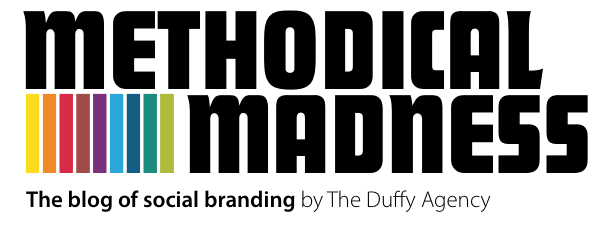Is it time to pitch the pitch?
 Wednesday, January 11, 2012 at 9:00AM
Wednesday, January 11, 2012 at 9:00AM Last fall, I was looking at my house and decided it was in desperate need of a facelift; specifically, it needed a new coat of paint. So I did what I usually do in these situations, I asked a few friends to recommend some painters. I also Googled “painters” for my hometown. In the end, I came down to four firms that had good reputations, good references and all the right experience I needed.
Then, I gave each of them my terms.
I asked each to paint one side of my house including the trim. I then proceeded to tell them that once I saw the results of their work, I would decide which company I would pay.
Normally, you’d think there is no way any self-respecting company would agree to such outrageous terms. However, it happens in the marketing and advertising industry all the time. We even have a name for it: pitching.
Essentially, your agency, along with a number of competitors, develop an advertising or marketing campaign for a client. If they like it, you win the business. Of course, even if you win the business, you may not get paid for the creative and strategic work you developed. After all, some clients would argue, the big idea part was already done. Free creative and strategy was the cost of entry.
There is no other industry in the world that works this way.
And the only reason it still exists at all is habit. Since the days of Mad Men, advertising companies made commission off of media buys. So we would give the creative and strategy away for free in order to get that 15% chunk of the media pie.
But things have changed. Media budgets have evaporated. And those brands that still have substantial media budgets are buying that time directly. In addition, there is "free" media, such as Facebook, LinkedIn and YouTube.
So what is a modern-day advertising company to do?
Stop pitching (at least for free). Giving away your product tells clients that it has no value. So, if you don’t value it, how can your clients? Some may bring up pitch fees as compensation, but in truth pitch fees are part of the problem because they provide the illusion that the client is paying for the work. In truth, pitch fees are usually pennies on the dollar and usually never even cover a fraction of the cost of the pitch for the agency.
At The Duffy Agency, we have never been big fans of entering into a pitch, but have transgressed in the past with the lure of landing that big client. In almost every case, we've paid a heavy price.
The Duffy Agency's product is the services we provide, including international brand strategy, creative execution and campaign adaptation for new markets. These are things that have taken years of hard work to develop. These services have a tangible value, and we bill for them accordingly.
Of course, a creative pitch is different from a capabilities presentation or a "chemistry" meeting, which we are always happy to do. Sitting down with clients and getting a clear understanding of their business problems and goals is part of establishing a good working relationship.
However, spending hundreds or even thousands of hours developing free work is not a sustainable business model. As an industry, we need to change how the client/agency relationship works and start valuing the work we produce.
The Duffy Agency's motto has always been, "We will do anything for our clients." For the new year, we've decided to modify it a bit: "We will do anything for our clients—except work for free."
What do you think about pitching? Do you think it is an industry practice that should stop? Tell us what you think in our comments section.
Kevin Duffy is the Creative Director for The Duffy Agency's Boston office.

Reader Comments (4)
I thought it was just me who thought the pitch process was broken. Watching agencies pouring money into a ridiculous dog and pony show. And now, they've glorified it with its own TV show. Yay! Of course, as a creative consultant who makes his living off of this practice it would put me out of business. Never the less, it's a ridiculous process that devalues the whole industry and gives the corporate task masters way too much power and control. Who gets hundreds of thousands of dollars of work for free in today's economy? And who is giving it away? Agencies need to decide to get off the Titanic and get a lift on the 21st Century business model.